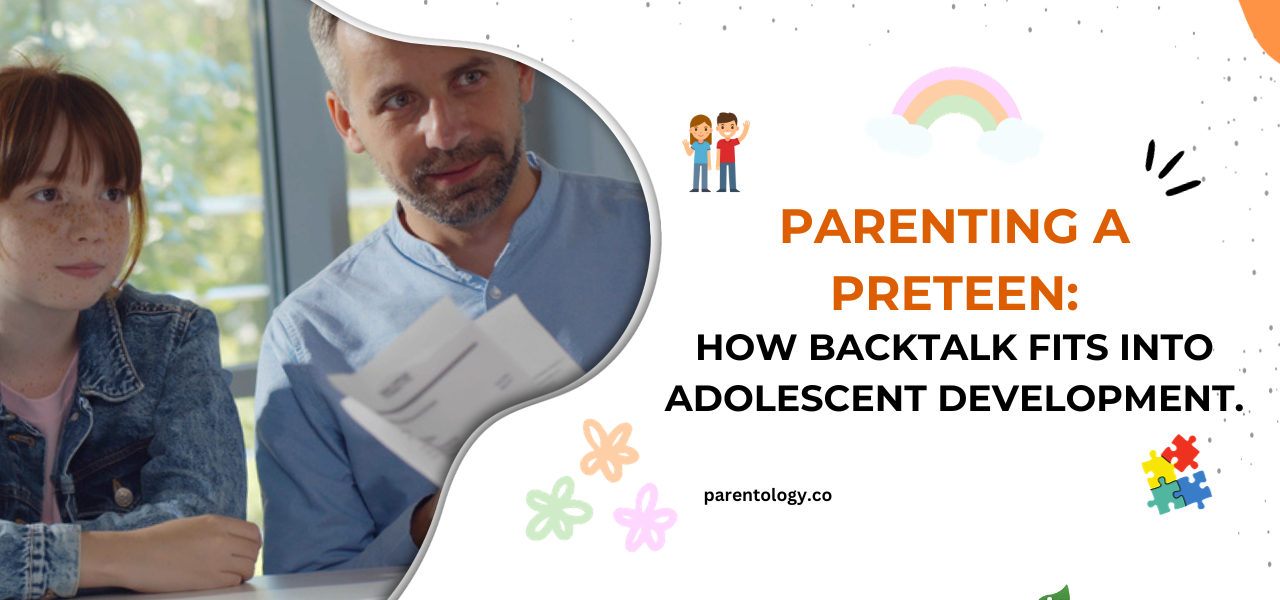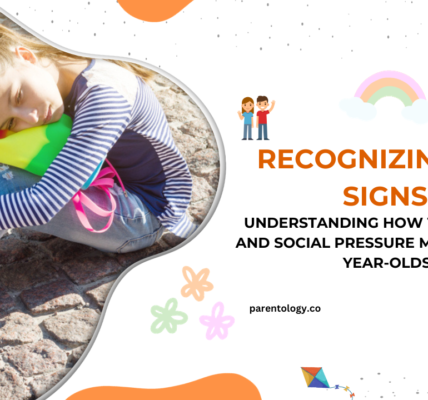Mastering the Art of Parenting: Dealing with Kids Backtalking in Adolescence
Parenting a preteen comes with its unique set of challenges, and one common hurdle many parents face is dealing with backtalk. Understanding how backtalk fits into adolescent development is key to navigating this phase with grace and effectiveness. Let’s explore insightful strategies and expert advice deal with kids backtalking while fostering a healthy parent-child relationship.
The Dynamics of Backtalk in Adolescent Development
1. Defining Backtalk in the Preteen Years
- Backtalk refers to disrespectful or defiant responses from a child, often characterized by a challenging tone or attitude.
- In adolescence, backtalk can be a demonstration of newfound independence and the desire for autonomy.
2. Recognizing Backtalk as a Normal Developmental Milestone
- Adolescents are asserting their individuality and testing boundaries.
- Backtalk can be a way for preteens to express their opinions and set up a sense of self.
Strategies to Deal with Kids Backtalking
1. Maintain Calm and Composure
- Responding calmly prevents escalation and models appropriate behavior.
- Avoid reacting emotionally; instead, focus on explaining on their behavior.
2. Set Clear and Consistent Boundaries
- Establish firm but fair rules, clearly communicated to your preteen.
- Consistency reinforces expectations and helps curb backtalk.
3. Encourage Open Communication
- Create a safe space for your child to express both their thoughts and feelings.
- Encourage them to express their concerns without resorting to backtalk.
4. Teach Emotional Regulation
- Identify Emotions: Help your preteen recognize and articulate their emotions.
- Coping Strategies: Teach healthy ways to cope with frustration and anger.
5. Lead by Example
- Model Respect: Demonstrate respectful communication in your interactions.
- Apologize When Necessary: Admitting when you’re wrong, it will set a powerful example for your preteen.
Navigating Parenting Challenges in the Preteen Years
1. Understand the Need for Independence
- Recognize that preteens are asserting their independence.
- Balancing autonomy with guidance is important during this phase.
2. Foster a Healthy Parent-Child Relationship
- Build trust by actively listening to your preteen.
- Strengthen your connection through shared activities and quality time.
FAQs on Dealing with Kids Backtalking
Q 1: How to deal with kids backtalking and also deal with preteens?
Ans 1: Preteens often backtalk as a way to assert independence and establish their identity.
Q 2: How can I respond calmly to backtalk without getting frustrated?
Ans 2: Take a deep breath, pause before responding, and address the behavior, not the emotion.
Q 3: Is backtalk a sign of parenting failure?
Ans 3: No, backtalk is a normal part of adolescent development and doesn’t necessarily reflect parenting failure.
Q 4: Are there cultural differences in how backtalk is perceived?
Ans 4: Cultural norms can influence the perception of backtalk; what may be considered disrespectful in one culture might be viewed differently in another.
Q 5: Should consequences for backtalk be consistent across all ages?
Ans 5: Consequences should be age-appropriate, considering the developmental stage of the child.
Q 6: How can I balance allowing independence and maintaining control?
Ans 6: Set clear boundaries, communicate expectations, and involve your preteen in decision-making within those limits.
Q 7: Can backtalk be a sign of underlying issues like stress or anxiety?
Ans 7: Yes, backtalk can sometimes indicate underlying stress or anxiety; open communication is essential to uncover potential issues.
Q 8: Is there a difference between backtalk and healthy assertiveness?
Ans 8: Yes, healthy assertiveness involves expressing opinions respectfully, while backtalk is characterized by defiance and disrespect.
Q 9: What role does active listening play in addressing backtalk?
Ans 9: Active listening builds trust and allows you to understand your preteen’s perspective, facilitating more effective communication.
Q 10: Are there effective consequences for backtalk that promote positive behavior?
Ans 10: Consequences should focus on teaching respect and responsibility, such as loss of privileges or additional responsibilities.
Conclusion: Nurturing Respectful Communication in Adolescence
As you navigate the complexity of parenting a preteen, remember that backtalk is a normal part of their journey toward independence. By employing effective strategies, fostering open communication, and understanding the developmental milestones of adolescence, you can master the art of deal with kids backtalking while nurturing a respectful and loving parent-child relationship. For more parenting insights, visit Parentology and continue your journey as a mindful and empowered parent.





